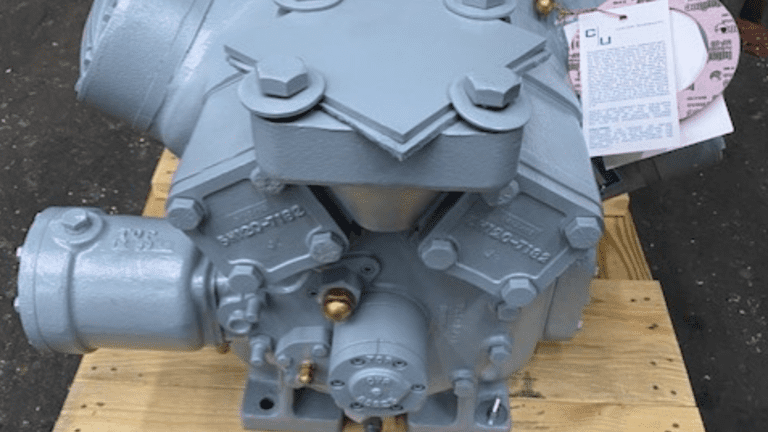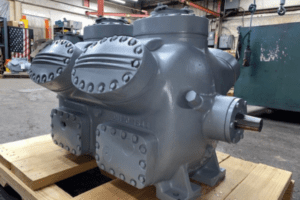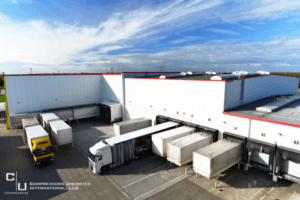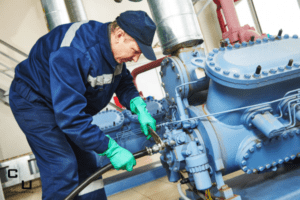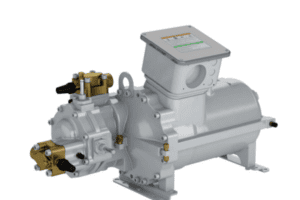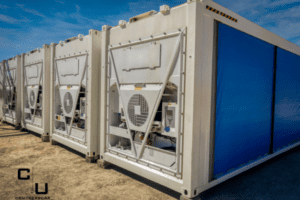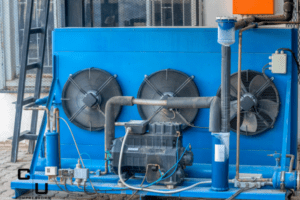No matter if you use commercial compressors for refrigeration or cooling, downtime is bad for business.
Even in the best-case scenario, losing cooling will quickly make many commercial and industrial facilities difficult to work in. Locations that rely on foot traffic are particularly affected. People just won’t visit you if they don’t feel like they’re getting a nice reprieve from the outdoor temperatures.
Lose your climate control for a whole day and it can start to have serious effects on your workforce. It’s no surprise when cooling, heating, and ventilation problems have a direct impact on absenteeism. In the long run, a prolonged outage can even turn into a safety issue that might lead to regulatory fines.
When your business relies on refrigeration, the stakes are even higher.
Many meats and dairy products can only sustain the briefest change in temperatures before they need to be thrown out. There’s no margin for error, as a single case of food poisoning can shut down a store or restaurant. In a matter of hours, you could lose tens or hundreds of thousands of dollars in stock.
It’s no surprise, then, that managing risk means reducing downtime.
And remanufactured commercial compressors are the key to success.
With Standard Compressors, Your Risk Management Options Are Limited
Sound maintenance practices are essential to keeping your compressors operational for as long as possible. But even when you follow those best practices, they will not keep a compressor working forever. You need to be prepared in the event that some part of the system fails.
Most problems in an HVAC or refrigeration system, luckily, aren’t caused by the compressor. Under appropriate conditions, compressors will last 8-10 years. Lapsed maintenance and problems in the operating environment are far more likely than unexplained, spontaneous failures.
Even so, preparation is the key. With a standard compressor, you may end up with few options. You can try to troubleshoot the issue and replace components to bring the unit back online, or you can source a new compressor from an OEM-affiliated manufacturer.
All too many organizations have learned that this process is never as seamless and efficient as it’s made out to be. It can take weeks just to complete an order and months for a new compressor to reach your facility. Meanwhile, you could be absorbing thousands of dollars in losses every day.
There’s often no way for a business to maintain “some” of its operations during a compressor failure. It’s all or nothing. With a remanufactured commercial compressor, you have the chance to be proactive, not reactive. That could reduce your downtime to a brief part of one day rather than months.
Remanufactured Commercial Compressors Put You in the Driver’s Seat
With a remanufactured commercial compressor from a reputable provider, you know you are getting a piece of equipment that meets all the expected performance and environmental standards, ready to go for the next 8-10 years. There are two distinct ways this can improve your readiness in an emergency:
1. Have a Secondary Commercial Compressor on Hand
Since a remanufactured commercial compressor can be 30% or more less expensive than a comparable new unit, many organizations take the opportunity to have a replacement compressor in stock. As you introduce more compressors, it becomes even more important to have backups at the ready.
Naturally, you should always replace your existing compressor with the same make and model you were using. This is where a strong relationship with a remanufacturer comes in handy. Remanufacturers have access to compressor cores from the top compressor brands so they can accelerate fulfillment for you. They can also reduce your costs by using one of your existing cores when you send it to them.
A compressor that’s safely stored and not in operation will be ready for you to use no matter if you need it months or years later. And because the remanufacturing process includes testing under simulated real-world conditions, you can rest assured it will work correctly when the time comes.
2. Have Parts Ready to Swap Out from Your Compressor
If you have compressor engineers on your team, it might be practical for you to use components direct from a remanufactured compressor in emergency maintenance and repair. Since your backup unit and the one currently in service should be identical in every way, this can help you resolve a problem fast.
Of course, you should always try to have replacement parts stockpiled for your compressor. Be sure to consult with your remanufactured compressor provider for their advice and insight before you open up a compressor to extract parts or make a replacement.
Any way you look at it, a remanufactured commercial compressor is the best way to reduce risk and hedge your bets when it comes to the costly problem of equipment downtime. One remanufactured commercial compressor can make a winning difference and save you many times the upfront price.

